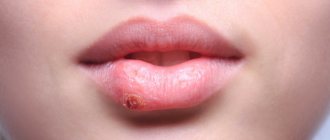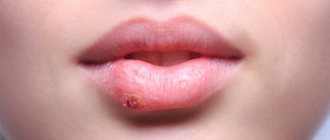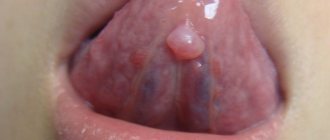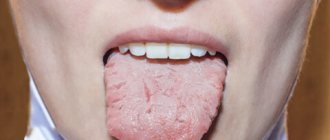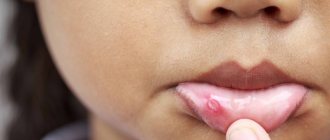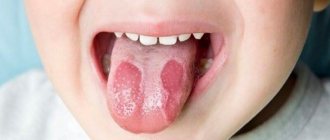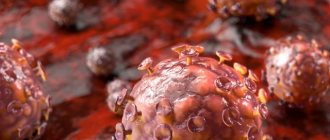The entry gate of SARS-CoV-2 is the mucous membranes. The virus, entering the nasal cavity with the air flow, penetrates the oropharynx, in the mucous membrane of which ACE2 receptors are located. With the help of S-proteins, which make up the “crown” of the virus, it binds to ACE2 receptors, after which the virus replication phase begins [1]. Thus, to resist infection, it is important to strengthen the local immunity of the mucous membranes. What drugs can be recommended to visitors and how to justify the recommendation?
general characteristics
Diseases of the oral mucosa can be infectious, inflammatory, viral or fungal. When an infection enters the oral cavity, the mucous membrane is the first to suffer. It can become inflamed, bleed, and become thinner. Conventionally, such diseases are classified as stomatitis. But besides stomatitis, there are many more problems that lead to deterioration in human health.
In almost all of the diseases described below, the symptoms will be similar: pain, rashes of various types, discoloration of the tissues of the oral cavity.
Oral diseases can be treated by a dentist, ENT specialist or therapist. When the first symptoms appear, you should consult any of these doctors for examination.
The most common oral diseases
Catarrhal stomatitis
Diagnosed in adults and children in most cases. Its development can be provoked by: insufficient hygiene, plaque and gum disease, oral dysbiosis, any diseases of the gastrointestinal tract (gastritis, colitis, duodenitis) and damage to the body by helminths.
It will be difficult for a person far from medicine to distinguish one disease from another. The symptoms of most of them are almost the same.
Symptoms of catarrhal stomatitis:
- Swelling of the oral mucosa;
- Whitish or yellowish coating;
- Increased sensitivity and soreness of tissues;
- Increased salivation;
- Bleeding gums;
- Bad breath.
Ulcerative stomatitis
A fairly serious disease of the oral mucosa. It can develop independently or as a complication after catarrhal stomatitis. Often this disease is diagnosed in people suffering from stomach ulcers or an acquired form of enteritis. In addition, the appearance of ulcerative stomatitis can be provoked by infectious, cardiovascular diseases, blood diseases and intestinal infections. Ulcerative stomatitis is active not only in the upper layer of the oral mucosa, but also spreads throughout its entire thickness. The symptoms are initially similar to catarrhal stomatitis, but then they intensify and are complemented by others.
Symptoms of ulcerative stomatitis:
- Increase in body temperature to 37.5 degrees;
- The appearance of ulcers on the inside of the cheek;
- Impotence;
- Headache;
- Painful enlargement of lymph nodes.
Aphthous stomatitis
It mainly develops due to weakened immunity, diseases of the gastrointestinal tract and allergies. In addition, viral infections or rheumatism can trigger the occurrence of aphthous stomatitis. It is worth noting that the exact causes of this disease are unknown to medicine.
Symptoms of aphthous stomatitis:
- The appearance of small red round ulcers on the oral mucosa. Over time, the center of the ulcer becomes grayish-yellow;
- General malaise;
- Temperature increase;
- Weakness.
Glossitis
Otherwise, a tumor (inflammation) of the tongue. Can be primary or secondary. It is often a companion to stomatitis of any form. The disease is dangerous because it can be complicated by abscessation of the tongue and the development of phlegmon of the neck. The chronic form of glossitis leads to the development of papillomatous, warty and other growths on the tongue. There are different types of this disease, which are similar in their main symptoms:
- Pain and swelling of the tongue;
- Red spots on the surface of the tongue;
- Redness of the pharynx, tonsils;
- Rash and sores.
Leukoplakia
Chronic disease of the oral mucosa. It hardly bothers the patient and has a blurred clinical picture. The causes of leukoplakia are traumatic in nature. It mainly affects older men. It is located on the mucous membrane of the cheeks, in the corners of the mouth and on the lateral surfaces of the tongue. The occurrence of this disease is provoked by mechanical damage to the mucous membrane: burns from too hot or spicy food, friction with the tops of broken teeth. The seriousness of leukoplakia is that it can degenerate into cancer, so the patient needs to consult an oncologist.
Symptoms of leukoplakia:
- Pathological keratinization of the epithelium;
- Growths are white or gray;
- Mild itching and burning.
Atrophic candidiasis
The disease affects newborn children, men who smoke, women of childbearing age and the elderly. As a rule, this pathology manifests itself in an acute form. The disease is difficult for patients to tolerate and significantly reduces the quality of life. A person experiences discomfort while eating, and is bothered by a burning sensation and itching.
Symptoms of atrophic candidiasis:
- Dryness and redness of the mucous membrane;
- Whitish coating in the folds of the mouth.
Lichen
This disease can affect not only the skin, but also the oral mucosa. The acute form lasts within a month, and the moderate-acute form lasts up to six months. In cases where lichen lasts for a long time, we are talking about a chronic form of the disease. In older people, oral lichen manifests itself in the form of erosions and numerous ulcers. In addition, rashes in the form of blisters may appear on the reddened mucous membrane. This disease mainly affects people who have a history of diabetes, weakened immunity, and various diseases of the liver and gastrointestinal tract. In some cases, there is a hereditary predisposition.
Symptoms of oral lichen:
- Plaques on the surface of the mucosa;
- Discomfort while eating;
- Itching and burning.
Dysbacteriosis
Most often, long-term antibiotic therapy leads to the formation of this pathology, which disrupts the healthy balance of microflora. If dysbiosis is not treated, it will spread further, disrupting the proper functions of the organs, completely affecting the tongue, tonsils and vocal cords. Most patients develop periodontal disease, which can lead to loosening and tooth loss.
Symptoms of dysbiosis of the oral mucosa:
- Unpleasant odor;
- Bleeding cracks in the corners of the mouth;
- Heavy plaque.
Cheilitis
The disease manifests itself not only from the inside, but also from the outside. The reasons lie in changes in hormonal balance, allergies, lack of vitamins, and the effect of fungal flora on the mucous membrane.
Symptoms of cheilitis:
- Inflammation of the lip border;
- Ulcers on the oral mucosa.
Infectious rhinitis and its consequences
Rhinitis can be acute or chronic. The acute type occurs suddenly and develops rapidly; the main reason for its appearance is infection with a respiratory infection. The nasal mucosa is affected by viruses, which gradually “capture” the entire nasopharynx and reduce immunity, as a result of which a secondary bacterial infection often occurs.
First, the nasal cavity feels dry and irritated, and a full range of ARVI symptoms appears: tearing, sneezing, itching and nasal congestion. Then severe swelling of the mucous membrane and abundant clear discharge appear. In the third stage, the discharge changes color to yellow or greenish.
If a runny nose does not go away for a long time, it can become chronic. Often the cause is improper treatment of acute rhinitis or its complete absence, in the hope that “maybe it will go away.” Also, an untreated runny nose can lead to complications such as sinusitis, otitis media, bronchitis, etc.
Diagnosis of diseases of the oral mucosa
Modern medicine has a wide range of diagnostic tests to make an accurate diagnosis.
Only a doctor can give the correct classification of the disease. For this purpose, he can use the following methods:
- Mucosal smear for microscopic examination;
- Conducting allergy tests;
- Analysis for viral infections (herpes, tonsillitis);
- General examination to identify the primary disease.
Mucosal care products
A well-known domestic pulmonologist, academician of the Russian Academy of Sciences, Professor Alexander Chuchalin, recommends carefully caring for the mucous membranes of the nasopharynx and oral cavity to increase the local immune response as part of the prevention of COVID-19 [2]. Along with hygiene procedures, it is important to maintain optimal hydration of the mucous membranes - this will help avoid the formation of microcracks. For this purpose, you can use saline solutions, sea water solutions to irrigate the nose and throat. Let us remind you that there is no scientific evidence that regular rinsing of the nose with saline solution can protect against the new coronavirus infection. An argument in favor of using products based on sea water to irrigate the nasal mucosa is the season of hay fever, which we are gradually entering.
We must not forget that the virus can penetrate through the mucous membrane of the eyes, which also requires care. To prevent dryness of the conjunctiva of the eye, you can use ophthalmic agents designed to moisturize the mucous membrane.
Therapy for diseases of the oral mucosa
Prevention measures:
- Visiting the dentist twice a year to promptly identify and eliminate dental problems;
- Careful observance of local hygiene;
- To give up smoking;
- Avoiding too hot and spicy foods;
- Rinsing the mouth with disinfectant solutions and herbal decoctions;
Oral hygiene should be carried out regularly. Failure to comply with basic rules can provoke the occurrence of sore throat, problems with the gastrointestinal tract and other pathologies.
The health of the oral mucosa largely depends on the condition of a person’s teeth.
To successfully cure any disease of the oral mucosa, it is necessary to suppress the factors that influenced its development. If you suspect any problems in the oral cavity, you should contact a specialist. It is categorically unacceptable to get too carried away with self-medication and resort to non-standard methods of treatment. If you do not see a doctor for a long time, a minor problem can develop into a more serious one, lead to complications and worsen a person’s overall health. In addition, some oral diseases can develop into malignant ones. You should not put off visiting a specialist and expect the disease to go away on its own. Timely diagnosis and treatment will help avoid many problems in the future.
Vitamin A to protect mucous membranes
Professor Chuchalin recommends increasing local immunity of the mucous membranes with the help of vitamin A in the midst of a pandemic [2]. It has been proven that vitamin A has a general strengthening effect, increases resistance to diseases of the mucous membranes and respiratory tract, and enhances cellular and humoral immunity.
It is known that with vitamin A deficiency, the response of T- and B-lymphocytes to a number of pathogens decreases or changes, the regulation of interferon production is disrupted, the number changes and the functioning of immune cells, in particular, monocytes and dendritic cells, is disrupted [3]. At the same time, vitamin A deficiency occurs quite often, especially in the spring, during the period of hypovitaminosis. According to statistics, about 250 million preschool children are deficient in retinol, and in at least 5 million cases it has clinical symptoms [3].
NB! Vitamin A is not recommended for use as a single drug during pregnancy without indications. Excessively high blood levels may be associated with teratogenic effects in the first 60 days after conception. But in combination with other vitamins and minerals, in a precisely calibrated safe dose, vitamin A can be included in multivitamin complexes for pregnant and nursing mothers.
The daily requirement for vitamin A for an adult is 0.9 mg [3000 IU].

